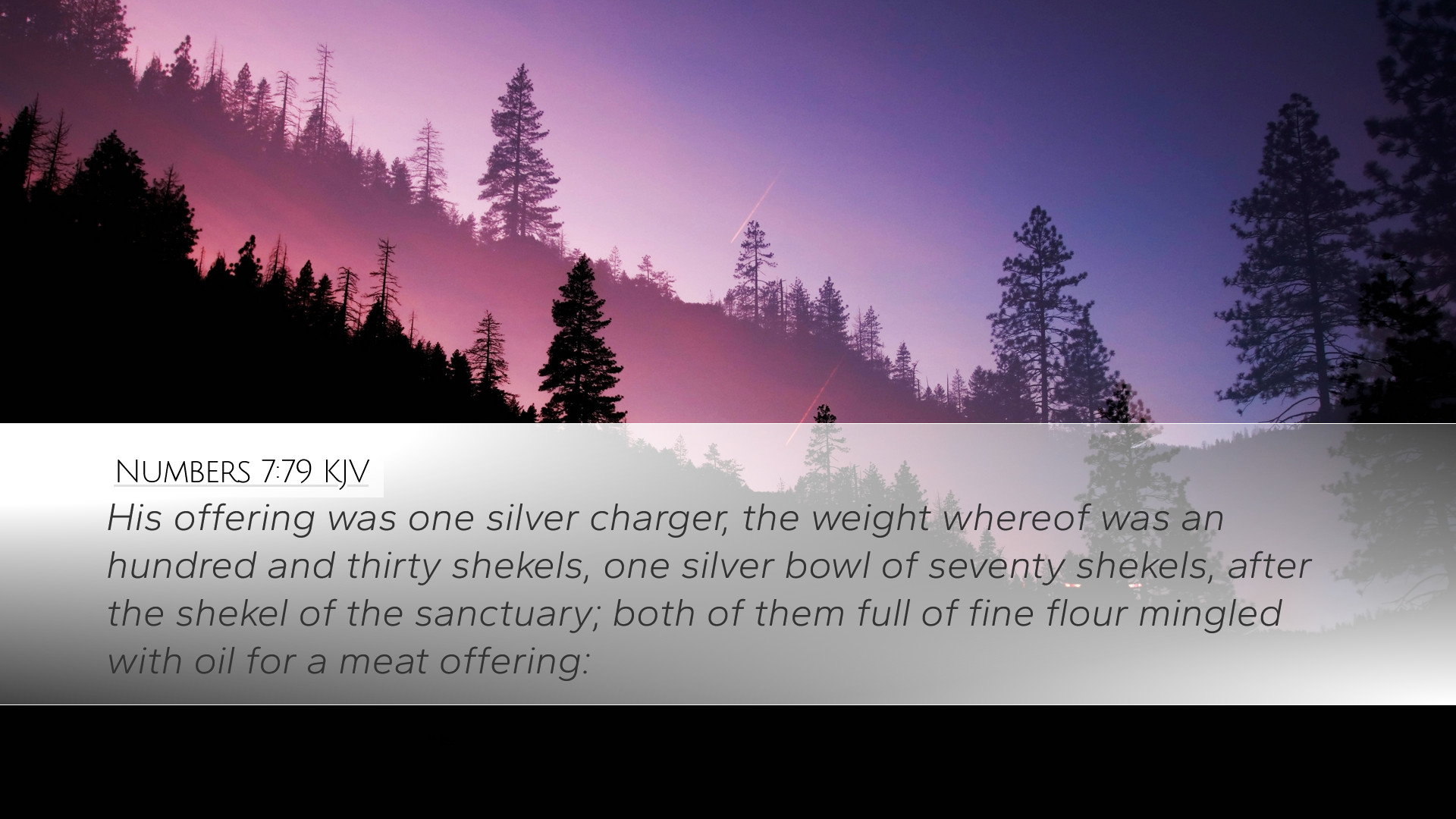Commentary on Numbers 7:79
Numbers 7:79 states: "And when the days of his separation are fulfilled, he shall be brought unto the door of the tabernacle of the congregation:"
Introduction
This verse takes place within a context that is deeply significant for understanding the themes of dedication, separation, and the sanctity of service unto God. It follows the broader events surrounding the consecration of the Levites and the establishment of the order of worship in the wilderness.
Textual Overview
-
Consecration of the Levites: Numbers chapter 7 is primarily focused on the offerings brought by the leaders of Israel during the dedication of the altar. Here we find the procedural elements associated with priestly duties.
-
Separation for Service: Verse 79 specifically highlights the conclusion of a period of separation. This ties into the broader concept of being set apart for holy service, illustrating a key principle that underlies the covenant relationship between God and His people.
Theological Insights
Numerous commentaries illuminate this verse, providing rich theological reflections that resonate with both ancient and contemporary faith journeys.
Matthew Henry's Commentary
Matthew Henry emphasizes the importance of separation as a necessary prelude to service. He notes that this period signifies a time of preparation and consecration, where one's focus is solely on dedicating themselves to God. The act of coming to the door of the tabernacle symbolizes the transition from a time of private devotion to public service. Henry argues that this reflects the believer's journey—from separation from the world to service in God's house.
Albert Barnes' Notes on the Bible
Albert Barnes provides a detailed exegesis of the ceremonial aspects surrounding this verse. He suggests that the 'door of the tabernacle' represents a threshold of holiness—a place where the ordinary meets the divine. According to Barnes, entering through this door signifies a new beginning in one’s life dedicated to God. It emphasizes the gravity of the responsibilities undertaken and the reverence required in serving God.
Adam Clarke's Commentary
Adam Clarke elaborates on the cultural context of separation. He argues that the act of bringing a person to the door signifies acknowledgment of their new status. This illustration rings true for modern believers who are called out of the darkness and into His marvelous light (1 Peter 2:9). Clarke underscores the notion that this transition should not be taken lightly, as the path to service is fraught with accountability and commitment.
Practical Applications
For pastors, students, theologians, and Bible scholars, Numbers 7:79 provides rich material for reflection and application in several areas of ministry and personal growth.
-
Call to Holiness: This verse reminds believers of the necessary call to holiness. It encourages a lifestyle dedicated to God, setting oneself apart from worldly distractions and aligning priorities with spiritual mandates.
-
Understanding Roles in the Church: The concept of separation leading to service necessitates that individuals understand their specific roles within the church. Every believer is called to a unique ministry, and recognizing this calling is crucial for the health of the body of Christ.
-
Preparation Before Service: The emphasis on preparation before service is critical. Much like the Levites were separated for an appointed time, modern believers should engage in intentional preparation through prayer, study, and accountability before stepping into roles of leadership or ministry.
Conclusion
In sum, Numbers 7:79 serves as a monumental verse in illustrating the process of consecration and preparation for service unto God. Through the insights of esteemed commentators such as Matthew Henry, Albert Barnes, and Adam Clarke, we gain a profound understanding of the implications of this passage. It not only serves as a historical reflection on Old Testament practices but also challenges contemporary believers to consider their own processes of separation and dedication unto God. This verse remains relevant, inviting those who read it to a deeper commitment to holiness as they approach the holy place—living lives that reflect true service to their Creator.


